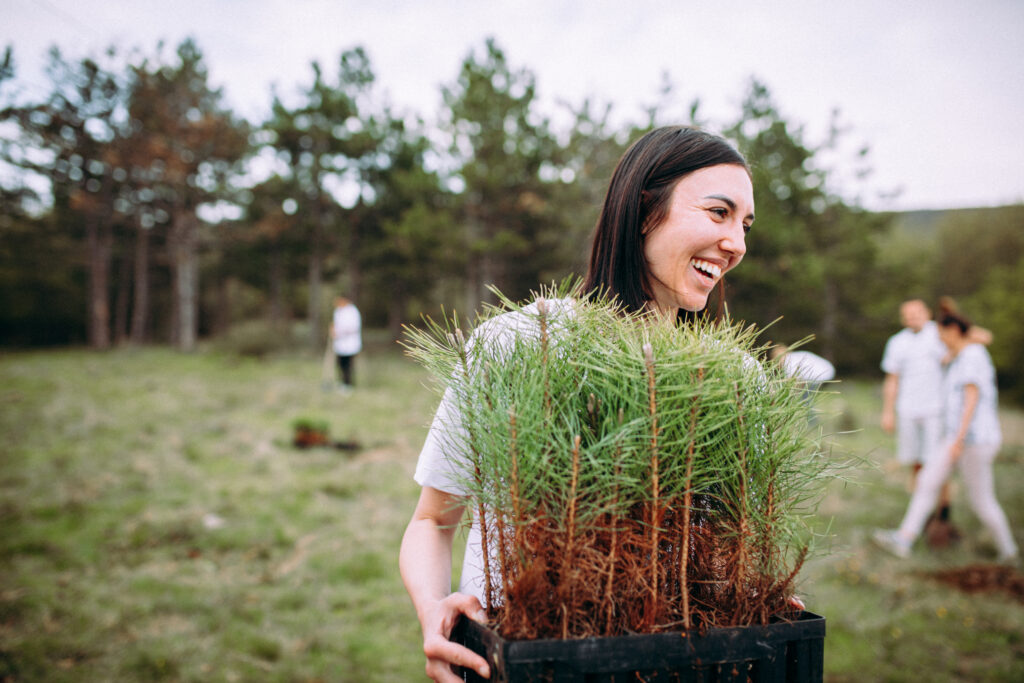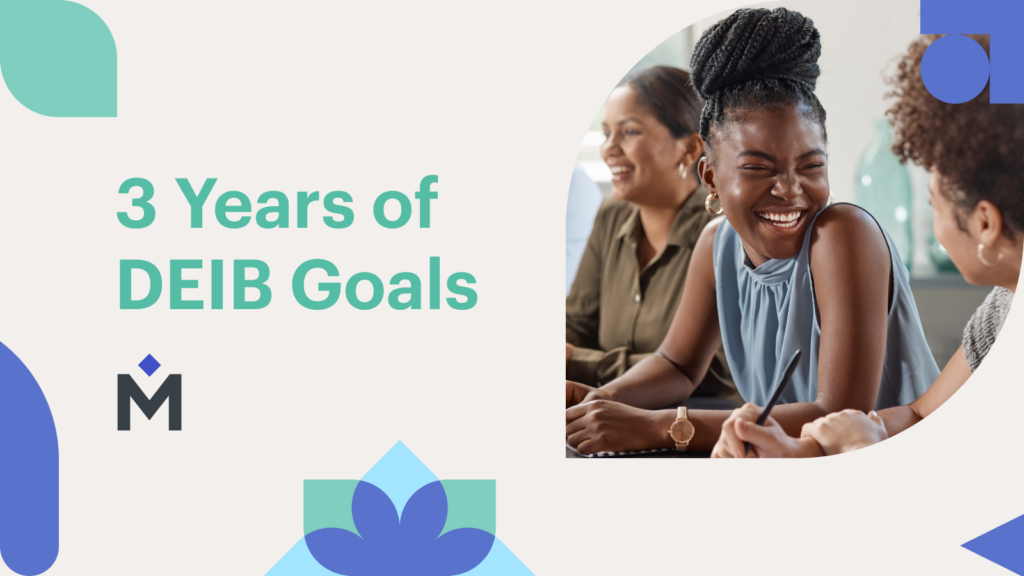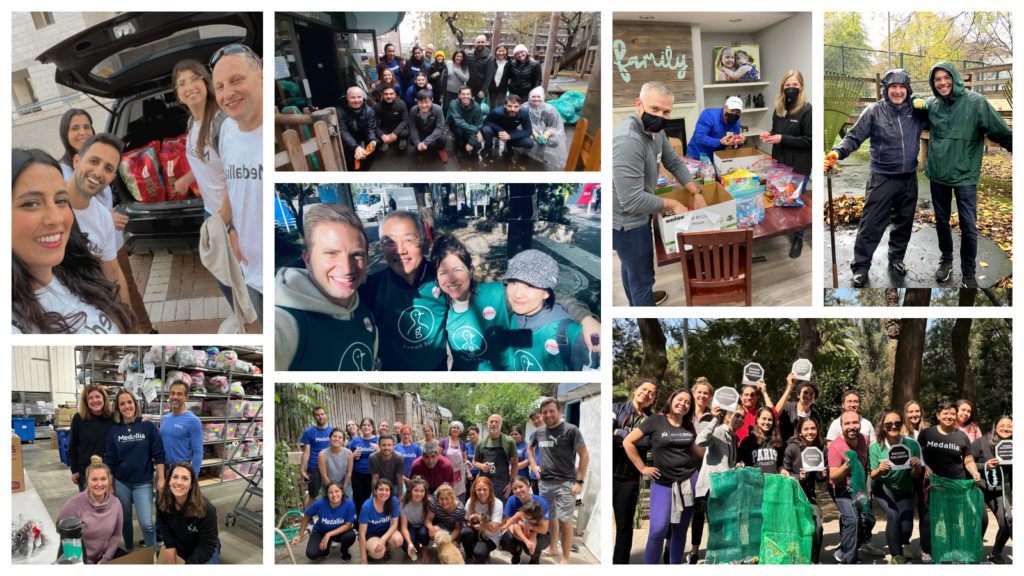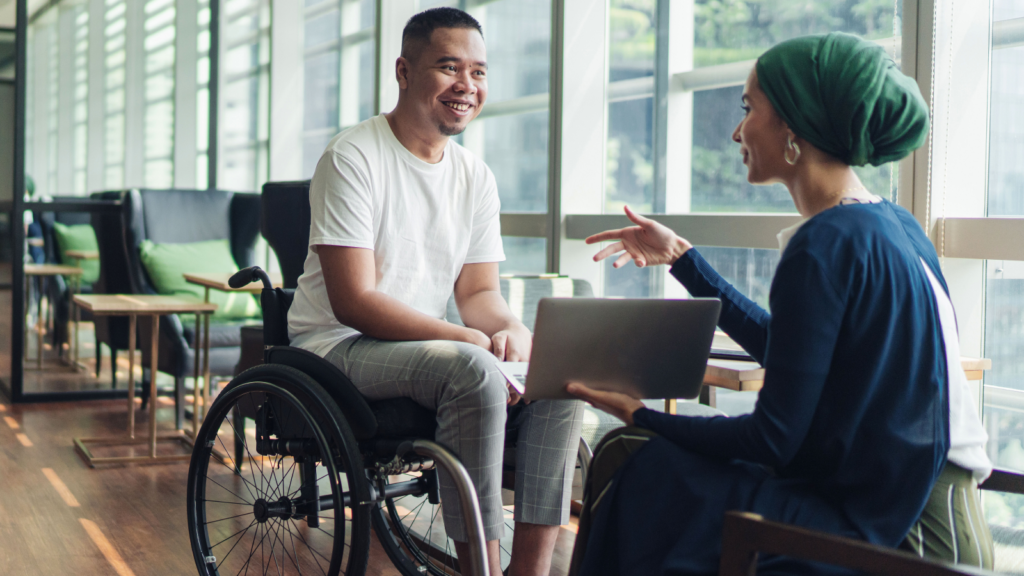This Mental Health Awareness Month, we connected with two women from Medallia and Black Girls Smile to learn more about how organizations can build awareness and share resources.
This Mental Health Awareness Month, with everything going on in the world today, we know so many are feeling burnt out, anxious, heartbroken, compassion, fatigue, and overwhelmed. That’s why we wanted to have a conversation about mental health.
We’re highlighting two amazing women, Kristi Roe, Head of Healthcare Experience at Medallia, and Lauren Carson, Founder of Black Girls Smile, to help build awareness and share resources.
Meet these incredible women, and read about their experience from their own point of view below.
Meet Kristi Roe, Head of Healthcare Experience
I started off as a mental health therapist, and worked in that space for about a decade. One day, I was asked to talk to doctors about empathy –– it was the coolest thing ever. So I shifted my career into the patient and employee experience world, which ultimately has led me to Medallia. I think that the next generation of experience work, especially in healthcare, is really about modernizing insights. When I saw what Medallia could do, I left my very lovely job that I had that I was really enjoying and said, “I need to be a part of that, because they are going to transform the industry.”
We have to let the vision of what we can do be greater than the fear and stigma.
Defining the healthcare experience and what it means to see the entire person
Currently in the healthcare industry we are seeing very high rates of burnout and emotional exhaustion, which can lead to mental health issues. I really focus on helping in areas where companies might not have that strong mental health focus. For example, how do we embed mental health into primary care? And I focus on the concept that we must acknowledge the entire person.
As the U.S. is entering into a post-COVID world, I talk about it in the sense that there was the infected from COVID, and now we’re into the space of the affected. I don’t think we’ve really comprehended everything that happened last year. Gallup has some amazing data called the thriving index, which shows the percentage of U.S. adults who evaluate their lives positively enough to be considered “thriving” has dropped to 48.8%, the lowest level since the Great Recession in December 2008.
Focusing on mental health is critical, and unfortunately there are many companies that just aren’t doing enough. When you think about how much time we spend in our workplace and how the culture of our work impacts us, how leadership impacts us –– there is so much opportunity for employers to realize their capabilities in the space. I recognize that yes, it may be uncomfortable to ask employees about their mental health. But we have to let the vision of what we can do be greater than the fear. Companies must find ways to deepen their support.
I do, however, think there’s a revolution happening. The next wave of what I’m hoping we see is employers really showing up in this space. Everything from reimagining benefits, to giving more mental health benefits and creating more access to mental health, to providing onsite support of holistic approaches such as yoga and meditation. In sum, there’s operational issues, cultural issues, and support issues preventing access to mental health. I’m excited for what employers can do in this moment to change that.
Bridging the disconnect between employer and employee
There is a disconnect in healthcare, and actually it’s been found across all industries. McKinsey just came out with a study which shows that when you ask executives in any industry if they support the mental health of their employees, 65% said yes, we support employee mental health very well. However, when the employees of those organizations were asked, only 51% of them agreed.
I think the primary bridge to that gap is deep listening. The way to a solution is engaging in a listening survey that’s meaningful and to ask humanistic questions. There should be a cycle of feedback and action. Leaders should be deep listening with their teams using different modalities. This is critical, and it’s sad, because most organizations just don’t see the value of it. The irony is that there’s an abundance of data that shows when your workforce culture is healthy and well and resilient your organization performs better. Ultimately, when employees are mentally healthy it leads to better financial outcomes due to better productivity, increased efficiency, lower turnover, etc.
Equitable listening
There is a quote by the theologian David Augsburger that we love here at Medallia, “Being heard is so close to being loved that for the average person, they are almost indistinguishable.” It’s our true North Star.
But we have to do a better job of understanding what being heard is to different people. Equitable listening means something different to each person, which is why it is so important to operate with an understanding of people’s unique life experience and cultural sensitivities.
I am not a DEIB practitioner; however, I am a student. In my experience, there are very similar journeys: the well-being journey and the DEIB journey. It’s about taking a step back on our preconceived notions and being comfortable in a place of not knowing, with a continued growth mindset. Both journeys require humility and vulnerability, and overcoming fears of the unknown.
The partnership between Medallia and Black Girls Smile
First of all, what Black Girls Smile does is critically important. I was a therapist, and I worked with adolescents for years, and there’s no question there are healthcare disparities that exist that keep our young Black women and men from receiving mental health treatment. There are systemic barriers that the Black community experiences. I love this organization and what they stand for. The fact that Medallia chose this organization that is focusing on where support and awareness is needed most is huge. And it gives me a major sense of pride working at Medallia.
Meet Lauren Carson, Founder, Black Girls Smile
I am an individual that has lived experience with clinical depression and suicide attempts. After graduating from college I moved to New York looking for volunteer opportunities. I quickly found that there wasn’t really anything out there in terms of mental health prevention or early intervention programming geared toward young African American girls. Black girls seemed to always be missing from the conversation. Once I realized this need in early 2012, we started Black Girls Smile. Initially we were really small and only in New York. We expanded around 2014 to the DC, Maryland,Virginia area, and then to Atlanta. Then during COVID, we were able to expand nationally.
One of the biggest trends we have seen is more people being open to accessing resources and therapy. When we started out, connecting young  WOC to therapists of color was very taboo within the Black community. When it comes to mental health among the Black community, it is very much the mentality of, “You need to pray about it” or, “We don’t talk about our stuff outside the home.” Although now there is more access to mental health support, we are seeing some devastating trends looking at suicide and suicidal behaviors for the Black community, specifically young Black girls. Statistics have shown that for Black youth, the suicide rate has increased 233% in the last 10 years. During this same period of time, suicide has decreased for all populations, except African Americans. Further research is starting to come out, showing suicide rates are starting to decrease among young Black men, but are still increasing among young Black women. I think there’s a lack of acknowledgement that Black girls are struggling with their mental health. I think that unique stress factors are definitely starting to be highlighted, but we are still seeing a gap in acknowledging there’s a problem and knowing how to actually solve it.
WOC to therapists of color was very taboo within the Black community. When it comes to mental health among the Black community, it is very much the mentality of, “You need to pray about it” or, “We don’t talk about our stuff outside the home.” Although now there is more access to mental health support, we are seeing some devastating trends looking at suicide and suicidal behaviors for the Black community, specifically young Black girls. Statistics have shown that for Black youth, the suicide rate has increased 233% in the last 10 years. During this same period of time, suicide has decreased for all populations, except African Americans. Further research is starting to come out, showing suicide rates are starting to decrease among young Black men, but are still increasing among young Black women. I think there’s a lack of acknowledgement that Black girls are struggling with their mental health. I think that unique stress factors are definitely starting to be highlighted, but we are still seeing a gap in acknowledging there’s a problem and knowing how to actually solve it.
When you say yes to someone else you are potentially saying no to yourself –– people need to start saying yes to themselves.
Breaking the stigma
Being confident in what’s best for you despite the stigmatized ideology our parents may have is a major first step. It’s really about addressing the stigma and uncovering what are the things holding you back, what are the misconceptions. In many cases these worries can be addressed, but are also very valid. Look at how the medical community has treated Black people historically –– this contributes to how we view healthcare from a simple doctor’s visit to getting the COVID vaccine. Think about the historical trauma the Black community has had to deal with from a mental health standpoint, for example The Tuskegee Experiment or Henrietta Lacks. If our community didn’t suffer in this way, we may not be as adverse to seeking resources and medical help. But as it stands, the Black community doesn’t trust our healthcare system, and with good reason.
There’s also a stigma when it comes to Black women –– we are the mules of society. We are constantly pouring into other people before we pour into ourselves. I try to remind people that you can’t pour from an empty cup. I heard once when you say yes to someone else you are potentially saying no to yourself. I strongly believe people need to start saying yes to themselves. I really encourage people to find ways to implement boundaries.
There are so many things, especially as people of color and especially as Black women, that just are out here as haters to our joy.
Helping Black Girls find their smile
One of the things that’s really unique about our programming is we address common warning signs of mental health difficulties, which also focuses on cultural and gender specific symptoms. For instance, Black women specifically are more likely to report psychosomatic symptoms –– meaning physical manifestations of stress and anxiety. We help young girls first identify what are some of the common warning signs and symptoms, cutting out some of the medical jargon that won’t land with young Black girls. Education is key, and then providing them with coping skills and self-care methods. We really emphasize things like journaling and finding ways to express their feelings and emotions, because we don’t all have the luxury of going to a school counselor or sitting down with a therapist. But first and foremost, we meet them where they are and go from there, because what works for one person won’t necessarily work for another.
We also put a focus on building relationships and a mental health community. Identifying those individuals you can talk to without fear of judgement, who meet you with empathy and compassion. In general, people who understand what you’re going through and what you’ve been through are important to your health and recovery.
We’re here to live joyful lives and there are so many things, especially as people of color and especially as black women, that just are out here as haters to our joy. And I’m simply not here for that. So one of the things Black Girls Smile has done is deepen our commitment to Black girls and women. Last year we started a therapy scholarship fund –– we have over 100 women who we are providing financial support to work with a therapist for approximately three months. I am happy to say about 90% of the providers that we connect them with are women of color.
Recently we had our first conference, Black Girls Magic, that featured speakers such as Yasmine Jameelah, Rachel Cargle, Dr. Ayanna Abrams, Trina Greene Brown, Zyahna Bryant, and Danielle Cadet. Lastly, we are launching a virtual community so that we can increase our engagement and have more consistent engagement with our community and find more creative ways to support them, especially during this time. I’m really looking to create more peer and community support.
Medallia is growing and dedicated to “hiring the whole person.” Join the #MedalliaLife by heading to our careers page and applying today.

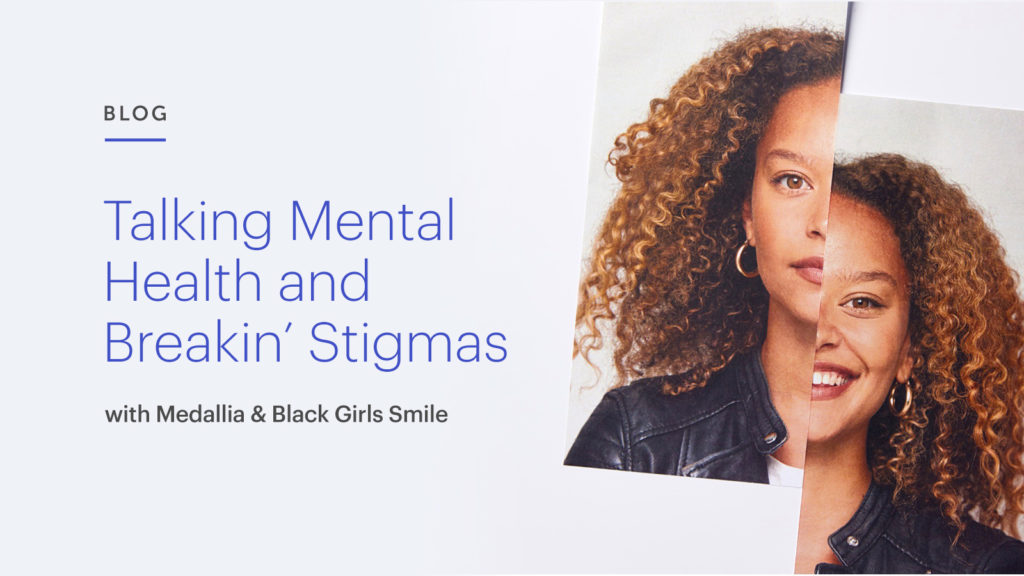
 WOC to therapists of color was very taboo within the Black community. When it comes to mental health among the Black community, it is very much the mentality of, “You need to pray about it” or, “We don’t talk about our stuff outside the home.” Although now there is more access to mental health support, we are seeing some devastating trends looking at suicide and suicidal behaviors for the Black community, specifically young Black girls. Statistics have shown that for Black youth, the
WOC to therapists of color was very taboo within the Black community. When it comes to mental health among the Black community, it is very much the mentality of, “You need to pray about it” or, “We don’t talk about our stuff outside the home.” Although now there is more access to mental health support, we are seeing some devastating trends looking at suicide and suicidal behaviors for the Black community, specifically young Black girls. Statistics have shown that for Black youth, the 
